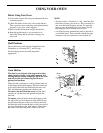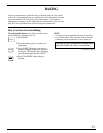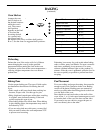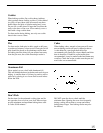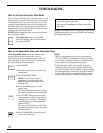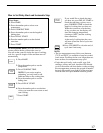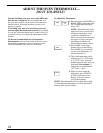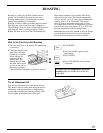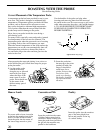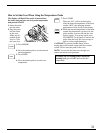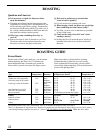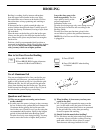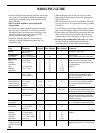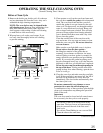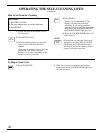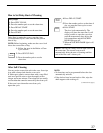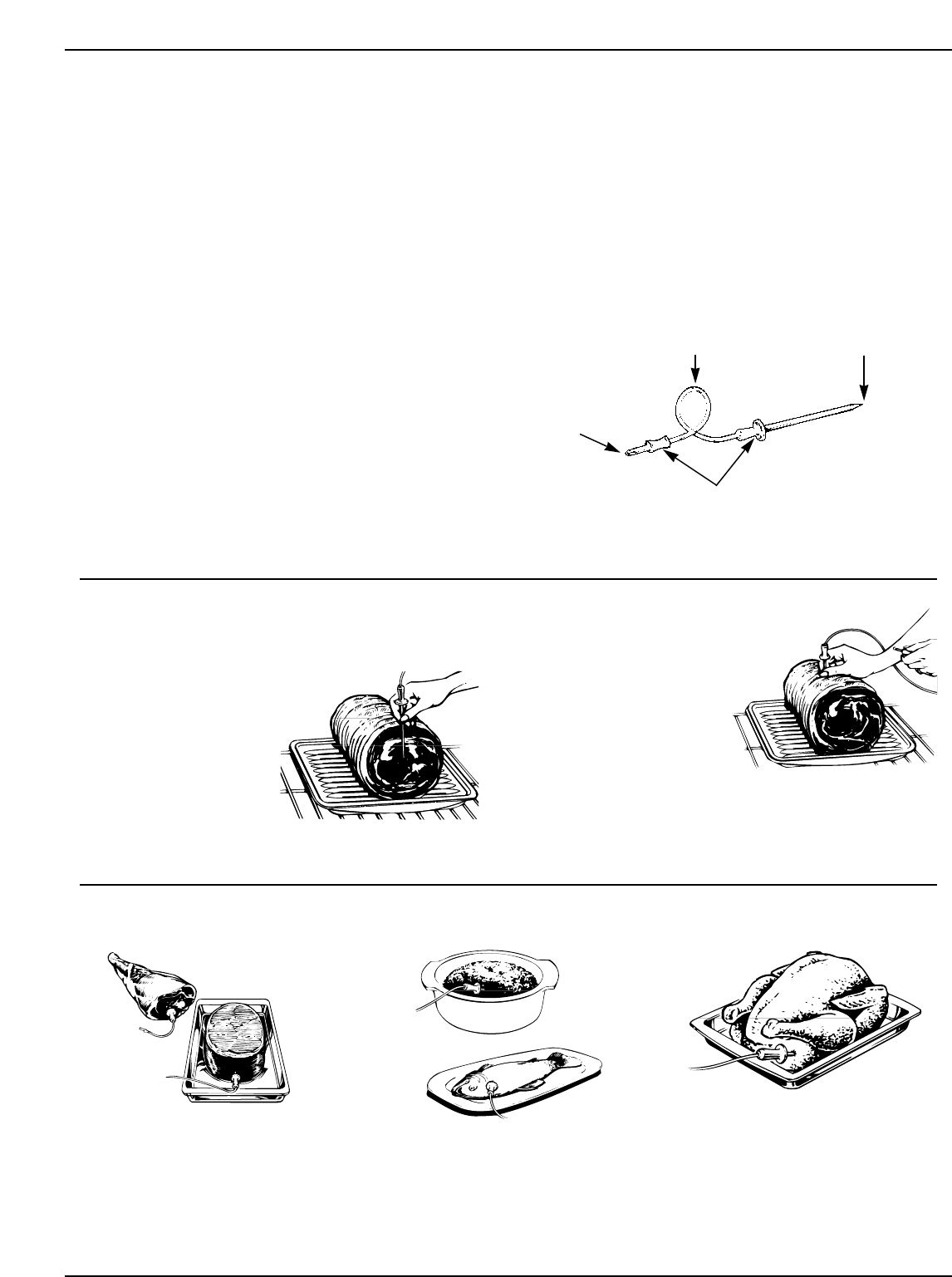
Correct Placement of the Temperature Probe
A temperature probe has been provided for use in your
new oven. This probe is designed to withstand high
temperatures. Temperature probes provided with other
products, such as those used for microwave ovens,
may not be designed to withstand high temperatures.
Use of probes other than the one provided with this
product may result in damage to the probe.
Never leave your probe inside the oven during a
self-cleaning cycle.
For many foods, especially roasts and poultry, internal
food temperature is the best test for doneness. The
temperature probe takes the guesswork out of roasting
by cooking foods to the exact doneness you want.
When the internal temperature of the food reaches the
temperature you set, the oven automatically shuts off.
The temperature probe has a skewer-like probe at
one end and a plug at the other end that goes into the
outlet in the oven.
Use the handles of the probe and plug when
inserting and removing them from the meat and
the outlet in the oven. Do not use tongs to pull on the
cable when removing the probe—they might damage
it. TO AVOID BREAKING THE PROBE, MAKE
SURE FOOD IS COMPLETELY DEFROSTED
BEFORE INSERTING.
(appearance may vary)
ROASTING WITH THE PROBE
See the Roasting Guide.
Plug
Cable
Probe
Handles
After preparing the meat and placing it on a trivet or
on the broiler pan grid, follow these steps for proper
probe placement.
1. Lay the probe on the
outside of the meat
along the top or side and
mark with your finger
where the edge of the
meat comes to on the
probe. Point should rest
in the center of the
thickest meaty part of
the roast.
2. Insert the probe into
the meat up to the point
marked off with your
finger. It should not
touch bone, fat or
gristle. No more than
two inches of the
probe, not counting
the handle, should be
left exposed outside
the meat.
Ham or Lamb Casseroles or Fish Poultry
For roasts with no bone, insert the
probe into the meatiest part of the
roast. For bone-in ham or lamb,
insert the probe into the center of
the lowest large muscle or joint.
Insert the probe into the center
of dishes such as meat loaf or
casseroles. When cooking fish,
insert the probe from just above
the gill into the meatiest area,
parallel to the backbone.
Insert the probe into the meatiest
part of the inner thigh from
below and parallel to the leg
of a whole turkey.
20



